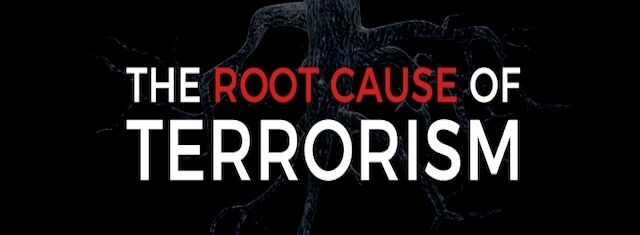Politics
THE ROOTS OF TERRORISM: PART 5
POLITICAL SIDE

Dr Anmar Nazar Al-druby
USPA NEWS -
Although, Hassan Al-Banna, declared at the beginning of his call that the Muslim Brotherhood is a propaganda group and the goal of establishing it is a religious goal, establishing the group in this form at a time when Egypt was under colonialism is a political act. It is a movement that does not want to practice politics in the way that is promoted and controlled by the colonizer. Because the group has called since its inception, and through its intellectual or ideological reference, for the liberation of the Islamic homeland in all its parts from all non-Muslim authority and the establishment of the Islamic state, even if the need to resort to the use of violence and force.
Here lays the danger of the group’s thought. The issue is not related to discussing and accepting ideological ideas in whole or in part. Rather, it lies in how to implement these ideas and the mechanisms of this application that pushed the group through its theorists and brought it to the circle of using violence. As the group was able to exploit religion in its directed discourse, and it succeeded in attracting the audience, then it became a major power with wide popular and grass-roots bases that worked in secret and covertly. Therefore, the entry of the Muslim Brotherhood into the political fray since its inception has put it on a collision course with the ruling authorities since its emergence in the monarchy, the passage of all Egyptian governments to this day.
By studying the origins of the various Islamic terrorist groups and reading their ideology, in addition to the violent and extremist history of these groups, it becomes clear how closely these groups and movements are associated with the Muslim Brotherhood. The accusations were directed against the Muslim Brotherhood, as it is the responsibility for the groups of violence. Rather, the violent groups emerged from under their cloak, such as the Jihad group or the Islamic Group, the Takfir group and other groups that arose in Egypt and took violence as an approach to them and a way to achieve their goals.
Consequently, the intellectual and movement framework of all jihadist groups since their inception, such as Al Qaeda, the Islamic State in Iraq and the Levant (ISIS) and all other militant groups and organizations branching off from it, have based their interpretation of jihad and the practice of violence and the adoption of extremist ideas on the Brotherhood’s literature. Most notably the writings of the group’s founder, Hassan Al-Banna, Sayyid Qutb, Abi Al-Ala Al-Mawdudi and others.
Therefore, they carry the same thought and ideology in calling for the application of the principle of governance to God, and fighting foreign domination of the Arab world and jihad against it. Perhaps the most prominent of these organizations is Al-Qaeda, ISIS, and Ansar Bayt al-Maqdis in Sinai.
Therefore, they carry the same thought and ideology in calling for the application of the principle of governance to God, and fighting foreign domination of the Arab world and jihad against it. Perhaps the most prominent of these organizations is Al-Qaeda, ISIS, and Ansar Bayt al-Maqdis in Sinai.
Osama bin Laden established Al-Qaeda in Afghanistan between 1988 and 1989 with the help of Brotherhood leaders, most notably Ayman al-Zawahiri, who was a member of the Brotherhood before joining the Islamic Jihad, and Abdullah Azzam, a member of the group’s Shura Council, called the pioneer of the Afghan jihad.Then extremist groups and movements criticized the Muslim Brotherhood, accusing it of disruption and deviation due to their support for the rulers in Egypt, their support for the constitution and democracy and their acceptance of secular and non-Islamic parties, as well as their participation in the processes of power transfer and competing for it peacefully.In addition to their acceptance of existing laws, regulations and legislation in Egypt and the Islamic world. On the other hand, the Muslim Brotherhood has rejected, specifically in recent years, these accusations directed to them, as the group clarified its rejecting violence in official, and published statements condemning, denouncing and rejecting violence in all its forms and manifestations, regardless of its sources and motives, on the basis of their understanding of the values, principles and teachings of Islam.
Liability for this article lies with the author, who also holds the copyright. Editorial content from USPA may be quoted on other websites as long as the quote comprises no more than 5% of the entire text, is marked as such and the source is named (via hyperlink).






